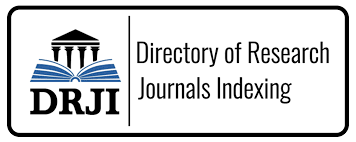Pengaruh Digital Financial Literacy, FoMO, Performance Expectancy dan Effort Expectancy Terhadap Use Behavior Pada Digital Payment (Studi Pada Generasi Z di Kota Palembang)
DOI:
https://doi.org/10.31851/jmwe.v22i2.19584Abstract
ABSTRAK
Perkembangan teknologi yang makin pesat telah mendorong banyak perubahan terutama pada sistem pembayaran yang semula menggunakan pembayaran secara langsung telah beralih menjadi pembayaran digital. Penelitian ini menyelidiki faktor-faktor yang dapat mempengaruhi perilaku penggunaan dalam mengadopsi layanan pembayaran digital. Tujuan dari penelitian ini adalah untuk mengetahui bagaimana pengaruh Digital Financial Literacy, FoMO, Performance Expectancy dan Effort Expectancy terhadap Use Behavior Digital Payment Generasi Z di Kota Palembang. Teknik pengumpulan data yang digunakan adalah accidental sampling dengan pengumpulan data dari 96 responden. Analisis data dilakukan menggunakan Partial Least Square Structural Equation Modeling (PLS-SEM). Hasil penelitian menunjukkan bahwa Digital Financial Literacy dan FoMO tidak memiliki pengaruh yang signifikan terhadap Use Behavior, sedangkan Performance Expectancy dan Effort Expectancy memiliki pengaruh positif dan signifikan terhadap Use Behavior Digital Payment Generasi Z di Kota Palembang. Temuan penelitian ini berkontribusi terhadap pencapaian United Nations Sustainable Development Goals (UN SDGs) nomor 8, yang terkait dengan pertumbuhan ekonomi yang berkelanjutan melalui akses keuangan digital.
Kata Kunci: Pembayaran Digital, FoMO, Literasi Keuangan Digital, Perilaku Penggunaan, SDG 8.
ABSTRACT
The rapid development of technology has driven many changes, especially in the payment system, which originally used direct payments and has switched to Digital Payments. This study investigates the factors that can influence Use Behavior in adopting Digital Payment services. The purpose of this study was to determine how the influence of Digital Financial Literacy, FoMO, Performance Expectancy and Effort Expectancy on the Use Behavior of Digital Payment Generation Z in Palembang, Indonesia. The data collection technique used was accidental sampling with data collection from 96 respondents. Data analysis was performed using Partial Least Square Structural Equation Modeling (PLS-SEM). The results showed that Digital Financial Literacy and FoMO did not have a significant influence on Use Behavior, while Performance Expectancy and Effort Expectancy had a positive and significant influence on the Use Behavior of Digital Payments for Generation Z in Palembang. The findings of this study contribute to the achievement of United Nations Sustainable Development Goals (UN SDGs) number 8, which is related to sustainable economic growth through digital financial access.
Keywords : Digital Payment, FoMO, Digital Financial Literacy, Use Behavior, SDG8.
References
Al-Adwan, A. S., Li, N., Al-Adwan, A., Abbasi, G. A., Albelbisi, N. A., & Habibi, A. (2023). “Extending the Technology Acceptance Model (TAM) to Predict University Students’ Intentions to Use Metaverse-Based Learning Platforms”. Education and Information Technologies, 28(11), 15381–15413. https://doi.org/10.1007/s10639-023-11816-3
Anjani, D., Awali, H., Misidawati, D. N., Ekonomi, F., Islam, B., & Pekalongan, I. (2022). Analisis Faktor-Faktor Yang Mempengaruhi Minat Generasi Z Dalam Menggunakan Sistem Pembayaran E-Wallet. www.dana.id,
Desvira, N. S., & Aransyah, M. F. (2023). Analysis of Factors Influencing Interest and Behavior in Using ShopeePay Features Using the Unified Theory of Acceptance and Use of Technology (UTAUT2) Model. Jurnal Sisfokom (Sistem Informasi Dan Komputer), 12(2), 178–191. https://doi.org/10.32736/sisfokom.v12i2.1594
Esther Rulianti, G. (2021). Analisis Faktor-Faktor Yang Mempengaruhi Minat Individu Dalam Berinvestasi Reksa Dana Di Aplikasi Bibit (Studi Kasus pada Mahasiswa S1 Jurusan Akuntansi Angkatan 2017-2020, Fakultas Ekonomi dan Bisnis, Universitas Brawijaya).
Hair, J. F., Black, W. C., Babin, B. J., & Anderson, R. E. (2019). Multivariate Data Analysis. Cengage. https://books.google.co.id/books?id=0R9ZswEACAAJ
Hair, J., Hult, G. T. M., Ringle, C., & Sarstedt, M. (2022). A Primer on Partial Least Squares Structural Equation Modeling (PLS-SEM).
Lyons, A., & Kass-Hanna, J. (2021). A Multidimensional Approach to Defining and Measuring Financial Literacy in the Digital Age.
OJK. (2019). Yuk Mengenal Fintech! Keuangan Digital Yang Tengah Naik Daun. OJK.
Onibala, A. A., Rindengan, Y., & Lumenta, A. S. (2021). Analisis Penerapan Model UTAUT 2 (Unified Theory Of Acceptance And Use Of Technology 2) Terhadap E-Kinerja Pada Pemerintah Provinsi Sulawesi Utara.
Patil, P., Tamilmani, K., Rana, N. P., & Raghavan, V. (2020). Understanding consumer adoption of mobile payment in India: Extending Meta-UTAUT model with personal innovativeness, anxiety, trust, and grievance redressal. International Journal of Information Management, 54. https://doi.org/10.1016/j.ijinfomgt.2020.102144
Phan, T. C., Minh, T. Le, Nguyen, T. T., & Phan, H. T. (2023). Digital Financial Literacy and Mobile Banking Behavior: Empirical Evidence from an Emerging Market (pp. 164–178). https://doi.org/10.2991/978-94-6463-348-1_15
Priscilia, L. V., & Fadjar, N. S. (2024). Pengaruh Penggunaan Dompet Elektronik (E-Wallet) Shopeepay Terhadap Perilaku Konsumtif Mahasiswa Di Kota Malang (Studi Kasus Pada Mahasiswa Fakultas Ekonomi Dan Bisnis Universitas Brawijaya). Journal of Development Economic and Social Studies, 3(1), 189–199. https://doi.org/10.21776/jdess.2024.03.1.15
Programme, U. N. D. (2024). What are the Sustainable Development Goals? https://www.undp.org/sustainable-development-goals
Putri, A. E. J., & Octavatiya, A. J. (2023). Perilaku Keuangan Pengguna E-Wallet di Kudus: Financial Technology, Demografi, Literasi Keuangan Dan Lifestyle Sebagai Prediktor. Ekobil, 2.
Radianto, A. J. V., & Kilay, T. N. (2023). Pengaruh Fomo (Fear Of Missing Out) Dan Influencer Terhadap Niatan Untuk Membeli Pada E-Commerce. https://doi.org/10.46306/rev.v4i1
Rani, T., Pratama, I., & Sinduwiatmo, K. (2024). Pandangan Mahasiswa Terhadap ShopeePay Sebagai Metode Pembayaran. In Converse: Journal Communication Science (Issue 1).
Riyanto, S., & Hatmawan, A. A. (2020). Metode riset penelitian kuantitatif penelitian di bidang manajemen, teknik, pendidikan dan eksperimen. Deepublish.
Roberts, J. A., & David, M. E. (2020). The Social Media Party: Fear of Missing Out (FoMO), Social Media Intensity, Connection, and Well-Being. International Journal of Human-Computer Interaction, 36(4), 386–392. https://doi.org/10.1080/10447318.2019.1646517
Roswaty, & Fitriana, N. (2020). Pengaruh Motivasi dan Komitmen Kerja Terhadap Kinerja Pegawai Pada Perwakilan BPKP Provinsi Sumatera Selatan. 9. https://doi.org/http://dx.doi.org/10.52333%2Fkompetitif.v9i1.636
Setiawan, B. (2023). Fintech and Financial Inclusion: Cross Country Study Comparing Indonesia and Hungary. Hungarian University of Agriculture and Life Sciences. https://phd.mater.uni-mate.hu/447/1/Dissertation%20%281%29_DOI.pdf
Setiawan, W., & Sunaryo, D. (2022). Analisis Fitur Layanan Dan Keamanan Terhadap Penggunaan Dompet Digital (Shopee Pay) Service Features And Security Analysis Of The Use Of Digital Wallet (Shopee Pay). In Digibis: Digital Business Journal (Vol. 1, Issue 1). http://jurnal.umt.ac.id/index.php/digibis
Sholihin, M., & Ratmono, D. (2021). Analisis SEM-PLS dengan WarpPLS 7.0 untuk Hubungan Nonlinier dalam Penelitian Sosial dan Bisnis. PenerbitAndi.
Sugiyono. (2017). Metodologi Penelitian Kuantitatif, Kualitatif, dan R&D . CV. Alfabeta.
Tandon, A., Dhir, A., Talwar, S., Kaur, P., & Mäntymäki, M. (2022). Social media induced fear of missing out (FoMO) and phubbing: Behavioural, relational and psychological outcomes. Technological Forecasting and Social Change, 174. https://doi.org/10.1016/j.techfore.2021.121149
Venkatesh, V., Morris, M., Davis, G., & Davis, F. (2003). User Acceptance of Information Technology: Toward a Unified View. MIS Quarterly, 27, 425–478. https://doi.org/10.2307/30036540
Wijaya, R. G. (2023). Dampak Penggunaan QRIS pada Pelaku UMKM di Kota Padangsidimpuan (Studi Kasus pada Coffee Shop Kopi Koe). Jurnal Keuangan Dan Perbankan Syariah, 2(1), 68–82. https://doi.org/10.24260/jkubs.v2i1.900
Downloads
Published
Issue
Section
License
Copyright (c) 2025 Jurnal Media Wahana Ekonomika

This work is licensed under a Creative Commons Attribution-NonCommercial 4.0 International License.
The copyright of the received article shall be assigned to the publisher of the journal licensed under a Creative Commons Attribution-NonCommercial 4.0 International License in line with the license, authors and any users (readers and other researchers) are allowed to share and adapt the material only for non-commercial purposes. In addition, the material must be given appropriate credit, provided with a link to the license, and indicated if changes were made. If authors remix, transform or build upon the material, authors must distribute their contributions under the same license as the original.






















